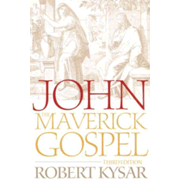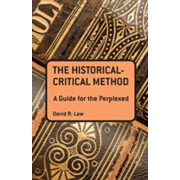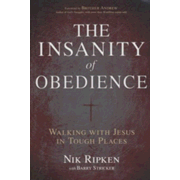FOR Christ the King Sunday we hear from the
Gospel According to Saint John. Within this text set aside for our celebration
we encounter the conversation between Pilate as a ruler of this world, and Jesus,
who is the One appointed by God as the divine King of Creation.
Pilate
entered the praetorium again and called Jesus, and said to him, “Are you the
King of the Jews?” Jesus answered, “Do you say this of
your own accord, or did others say it to you about me?” Pilate answered, “Am I
a Jew? Your own nation and the chief priests have handed you over to me; what
have you done?”
Jesus answered, “My kingship is not of this
world; if my kingship were of this world, my servants would fight, that I might
not be handed over to the Jews; but my kingship is not from the world.”
Pilate said to him, “So you are a king?”
Jesus answered, “You say that I am a king. For
this I was born, and for this I have come into the world, to bear witness to
the Truth. Everyone who is of the Truth hears my voice.” (John 18:33-38)
 |
John, the Maverick Gospel, Third Edition By Robert Kysar |
By
What Authority?
As John had related previously in this gospel, in this
writing today... which many authorities believe was created on or shortly after
the turn of the first century... we find that Jesus had been arrested. The temple guards had brought him in bondage before the Sanhedrin, the Jewish temple high court… to
be questioned by the chief priests. There in the temple, our Lord did not fare
well… for after questioning Jesus about false evidence and charges the Chief Priest tore
his robe in disgust. That leader called Jesus a blasphemer. He called him a liar before God. The priest declared loudly that Jesus’ punishment should be death. With that statement, the foreordained trouble became
complex.
You see, they were admonished by the jurisdiction of Rome that the
Jewish court did not have the authority to carry out the death penalty. Thus
the Sanhedrin was forced in their meager authority to take Jesus to the
Romans. Hence Jesus was brought before Pilate. It was thought by the Jews that if the
Romans would crucify Jesus, crucifixion being a favorite and very public way of
heavy-handed death… then the public would not blame the Jewish Sanhedrin for the occurrence.
That other
persons were in attendance when Pontius Pilate and Jesus spoke rests simply in that we have this detailed conversation in John. This is an
expansion of the same conversational scene found in Luke 23:1-5. The source of the conversational content may have been someone from the household of Pilate.
Truly knowing then
the background of this occasion and the verifiable scene, we can now derive several
lessons from this gospel account.
 |
The Historical-Critical Method: A Guide for the Perplexed By David R. Law |
First, note that
we hear evidence concerning the inability of the Jews to prosecute our Lord. While over the
flow of history there have been many who have blamed the Jews exclusively for
Jesus’ death, we see that they cannot be given whole credit or blame. In
the typical dramatic fashion of the Johannine writer, the power struggle of
Jews over against Rome had set the stage for our Lord’s commentary about
divine authority and his death. Jesus’ words would radiate forth in history from the triumvirate power struggle
between the Sanhedrin, Herod, and Rome.
Secondly, if we follow the text closely we see that Pilate
tried to ferret out the cause of temple unrest. His task was to find out who was to blame for the
disturbance caused during Passover, a time considered holy by the Jews? As one certified by
Caesar to keep the peace in Israel, the consul sought to quell any trouble.
Pilate asked our Lord whether the dispute
was because Jesus claimed to be “King of the Jews”. However, Jesus answered his question
by not by giving him an answer, but rather wisely asking Pilate a question. Jesus thereby
challenged the leader’s civil authority in their conversation.
Say
What?
Caught quite off guard by Jesus’ inquiry, though we
cannot hear the tone of Pilate’s voice... it seems that he became a little defensive. He
countered the question by saying that he was not a Jew, and stated the obvious…
that the Jews had legally passed the baton and turned Jesus over to him, While
Pilate could have been either bothered, or pleased by the responsibility passed to him... the case has been made that ultimately he knew
that he was responsible before Caesar for his own actions in the matter. As recorded here, at
this point in the conversational confrontation between the two men, a dialectic emerged concerning those sinful humans who seek to maintain control, pitted over against
the heavenly gift of human freedom given to us by divine grace.
Think of it! Jesus stood
before a representative of the foremost world power of the day and said that although he himself is a king, his
kingdom is not of this world. As proof offered, our Lord stated that since there was no
uprising in his behalf at the time, either popularly or militarily… no evidence existed
that he was an earthly challenge to either Jews or Romans.
May we consider this
bold statement recorded in John’s gospel as a method for the early Church to
calm suspicious Roman powers about Christians, those who were alive and peaceful during the first decades of the
second century? Possibly so.
 |
The Insanity of Obedience: Walking with Jesus in Tough Places By Nik Ripken with Barry Stricker |
Consider this! With this
statement spoken by Jesus, as told to the early Church, Pilate drove for clarity… “So you are a king?” Jesus
responded to this last question by making a statement which is both question and fact, by
stating that through both the jealousy of the Jewish authorities and
guarded nature of the Roman powers... by default... they had already recognized his authoritative kingship. Then our Lord further explained that his purpose was not to exercise earthly power, but to
reveal heavenly grace. This news had to have impact on the early Christian church as they were being persecuted.
Consequently, today we see that Jesus still would not be trapped by the falsity of human claims. They could not have ultimate power over eternal life and death. Jesus revealed not just these relative and temporal human truths, but indeed showed us absolute, eternal Truth. It is by accepting this last statement that we of the Church must bow down rightfully before the throne of the Almighty. By Jesus' being revealed as absolute Truth, we have come to know that Jesus is the Christ, the One who was, is, and is yet to come… the once-for-all-time manifestation of God to the world.
Consequently, today we see that Jesus still would not be trapped by the falsity of human claims. They could not have ultimate power over eternal life and death. Jesus revealed not just these relative and temporal human truths, but indeed showed us absolute, eternal Truth. It is by accepting this last statement that we of the Church must bow down rightfully before the throne of the Almighty. By Jesus' being revealed as absolute Truth, we have come to know that Jesus is the Christ, the One who was, is, and is yet to come… the once-for-all-time manifestation of God to the world.
What then can
we derive from this? I understand that for those living today who stand shocked when modern kingdoms
are shaken because of violent extremism, we hear this as calming news.
You see, as temporal earthly rulers contend toward gaining the powers over both Church and state, humanly built towers are struck by lightning and courtyards crumble. Yet we find ourselves comforted by the Holy Spirit. Through
the Holy Spirit revealing this good news, God’s beloved Son is illuminated. All of this brilliance is told within scripture rightly interpreted. We as readers or hearers are
brought therefore to believe that God has truly sent his Holy One amongst us. The Good News then… is that Jesus is the absolute Truth. Through his Holy Spirit working through the Church he gives us saving faith. This Jesus, the persecuted man rejected long ago by the religious and political authorities of his day, was crucified,
killed and buried and then rose again. He now sits as both rightful King and holy Priest at the
right hand of God the Father Almighty. Revealed to us as fully human and fully divine; therefore, we see him surely and most certainly as he is… the King and Lord of all creation.



No comments:
Post a Comment